THE CIVILISATIONS THAT SHAPED ME
"Every special calling in life, if it is to be followed with success, requires peculiar qualifications of understanding and soul," wrote Carl von Clausewitz in his opus On War.
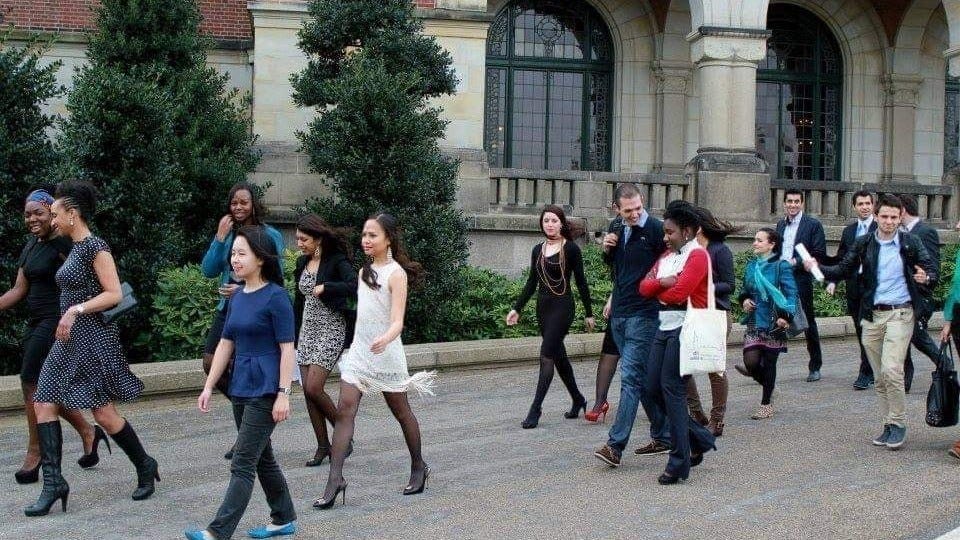
Every one of us emerges from the interacting moments, events, and ideas we encounter in our journey. “Traveller, there is no path. The path is made by walking,” Spanish poet Antonio Machado once versed. That path is who we are. Scholars who don’t lay bare their paths are mere echoes of others rather than active weavers of voices that give them their own song to sing to the world. Here’s a short story of the progression of my own song, a work in progress, for the voyage goes on...
“In a dark time, the eye begins to see.”
So incisively put by Theodore Roethke. And this is how I began to see.
I was eighteen. It was December 2000, a cliché month to bid the final adieu. Waking up each day became a repulsive affair. Everything was so clear: I wanted to die. My final choice for my final activity: Death by hanging.
Suicide letter? A vitriolic one, to be read on my interment. Funeral outfit? My high school uniform with the teddy bear my ex-boyfriend gave me. Funeral songs? On top of the list was Metallica’s Nothing Else Matters, the S&M Version. Had a special request for my preferred name — not my legal name — to be carved on my gravestone. Yes, my supposed death by suicide had its own production design and musical score.
Teenage angst, romantic anguish, unspeakable abuse I kept inside, a deep gyrating pain. I craved for the exit door. But, right before I get to it, something inside me — the naïvely courageous and the innocently brave — was trying to spread its wings and fly skies upon skies. The sound of a flat lifeline was already ringing in my ears when I struggled to halt my escape. The sound stopped. I fell on the floor. I survived. I survived my attempt to end it all because something inside me flickered: Purpose.
Starting any life story with death may be construed as macabre. However, the awareness of our own mortality spurs us to reflect on how we want to spend our remaining time. Embracing our finiteness helps us live our lives with meaning and leave a legacy that can inspire other people to live their lives with purpose.
Childhood
During my toddler years, I was pretty insulated from the problems of the world. After I was born, right after I was discharged from the hospital, I had a scorching fever. The doctor’s prescription was: I should only be in an air-conditioned room 24/7, away from direct sunlight because I was allergic to dust — and downtown Manila was so full of it. So I lived with a nurse in our house in Novaliches, away from my family living in downtown Manila.
To demonstrate the extent of my isolation, I was only baptised at six years old, when I was about to be enrolled as a Prep student at San Beda College, a Benedictine school. Baptismal certificate was one of the requirements to be enrolled. That’s why I could still remember everything about the day I was baptised.
My mother only brought me back to Manila after the 1986 EDSA Uprising because I had to start school already as a kindergarten. At that time, we were living on Recto Avenue, a few steps away from Mendiola. My first vivid memory of Manila was a very violent one. It was the January 1987 Mendiola Massacre. I could still remember how one of my aunts told me to stop looking outside the window as soon as farmer protesters began being gunned down. Our family sheltered some of those fleeing the carnage from a government celebrated in the West as a triumph of democracy over autocracy. Blood was all over the hallway of our building. I haven’t forgotten the scent of fresh blood on concrete.
December 1989 was also a very memorable time. I woke up one afternoon to a sound I never heard before. It was the sound of machine guns and WWII-era “tora-tora” hovering in Manila. It was the 1989 coup d’etat against President Corazon Aquino. We lived very close to Malacañang Presidential Palace, so imagine how frightening it was. It was a war zone. Electricity was cut off. And we could just follow the developments through a battery-powered transistor radio.
When the news broke out that the Americans might get involved, our family began plotting our exit. It could only get bloody from there. I could still remember how the adults in our family were in our dining room, frantically trying to figure out how we could move out and the route we could take. Where we were going? To Bicol — where my parents were from? To Novaliches? But how? All the roads in Manila were blocked. Fortunately, the coup d’etat didn’t lead to more bloodshed.
My mother recently told me that life must have really prepared me for my venture into the field of International Relations.
“Do you still remember when I had you enrolled to learn French and Japanese when you were still in Grade 3, and your classmates were children of diplomats?” she mused. Of course I did. But my mother had me enrolled for language courses not because she was preparing me for something, her reasons were less grand than that. She wanted me to do something for the summer other than idling around.
Coming of age
I came of age when the Soviet Union dissolved. It was the end of the bipolar world and the start of a unipolar one under Pax Americana. It was already in junior high school when I became interested in international affairs. It was the time I became a member of the debate varsity team of San Beda, and as president of our Debate Club. We had to study international relations and law for the debate, as the topics during that time were about contemporary issues in world politics. One of them was the NATO bombing of Yugoslavia in 1999. “That NATO bombing of Yugoslavia is illegal” was one of the propositions of our debate competitions. Later on in life, when I lived in The Hague, I was able to meet a key person in that conflict, former U.S. State Secretary Madeleine Albright. This served as a prelude to my discovery of my vocation.
That discovery started to unfold after high school, in Rizal Park in Manila.
I always pay a visit to this spot whenever I’m in Manila. This is across the Chess Plaza. I do it because it reminds me of my roots. That is the spot where I really started my adult life — as a homeless person who slept in the park. It was a choice I made after my mother made me choose at 18 between these two options: stay in her house but I had to follow her rules and what she wanted me to do in my life (including living as a man); or leave and choose how I would want to live my life (including living as a woman).
I had thanked my mother for putting me in that situation of having to choose. It was an adult speaking to another adult in 2001; and nothing makes one an adult more than being able to make choices for oneself. I left with a backpack, a walkman, a few clothes, a few books, a thousand pesos, and a Sony walkman with Tracy Chapman's Fast Car on repeat, I sing along whenever this line starts: “Any place is better / Starting from zero, got nothing to lose / Maybe we'll make something / Me, myself, I got nothing to prove.”
When money ran out, I ate leftover food in the food court of SM Manila. When I ran out of books to read, I would pass by a bookstore to read a chapter or two of books each visit.
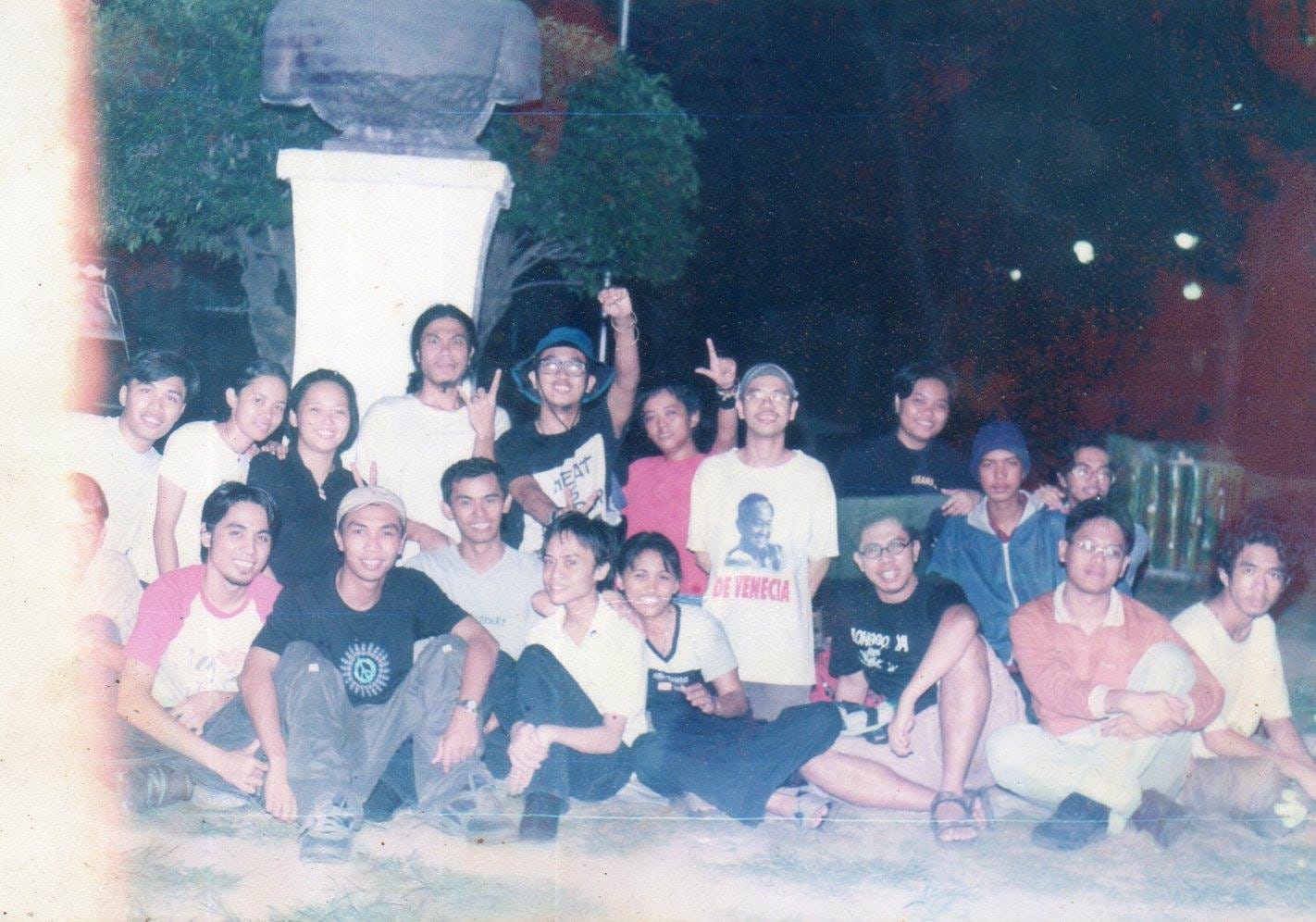
This experience honed in me the conviction that if you really believe in what you believe you will not be afraid to lose it all. It made me appreciate the value of all forms of suffering in life — fuel for the soul’s fire. Maybe I was just so inspired Charles Bukowski’s poem:
If you’re going to try, go all the way. Otherwise, don’t even start.
This could mean losing girlfriends, wives, relatives and maybe even your mind. It could mean not eating for three or four days. It could mean freezing on a park bench. It could mean jail. It could mean derision. It could mean mockery--isolation. Isolation is the gift. All the others are a test of your endurance, of how much you really want to do it.
And, you'll do it, despite rejection and the worst odds. And it will be better than anything else you can imagine. If you're going to try, go all the way. There is no other feeling like that.
You will be alone with the gods, and the nights will flame with fire. You will ride life straight to perfect laughter. It's the only good fight there is.
Our gatherings were full of discussions on philosophical questions: from art, to boredom, to god, to stupidity. We nurtured each other’s intellectual development. The homeless, the vagabonds, and sidewalk vendors listened to our conversations. We called the park our university — Luneta University. Luneta University was a motley crew of animal rights activists, communists, situationists, feminists, anarcho- capitalists, punks, freethinkers, artists, existentialists, postmodernists, poets, and writers. We formed an artist collective called The Luneta Freedom Collective (LFC), a counterculture performance art group. LFC performed in artsy bars, zine conventions, underground punk concerts, protest rallies, gatherings filmmakers in a full moon’s night, in parks, in schools. “Ayoko sa mundo nyo (I don’t want to be in your world), a monologue I wrote about the struggle for personal gender and sexual liberation, was the opening act of our performance.
September 11, 2001 was a watershed moment for all us. That year, I just turned 19. A year after I graduated high school. We watched on TV in a canteen in Rizal Park how the New York twin towers collapsed after two hijacked planes struck them. An incident that caused so much grief all over the world. A grief which led the United States and its Coalition of the Willing to invade Iraq in 2003. The invasion of Iraq was the first time I participated in an anti-war protest, specially through “Food Not Bombs” activities.
It is within this historical context that I also became an advocate of the rights of transgender people. At 19, I started to travel the world, being invited in mostly European countries as a speaker. This career culminated in December 2009, when I spoke before the UN General Assembly in New York during a side-event, making me the first woman of transgender background in the world to address the UN General Assembly.
A year before my New York gig, I had a speaking tour in Europe (Austria, Sweden, and Iceland). In November 2008, I was in a protest rally in Reykjavik, which was precipitated by the Global Financial Crisis. That crisis exposed how the greed of the few can railroad democracy.
Awakening to a wider world
In 2011, I migrated to the Netherlands to resume studying and to be with my then Dutch boyfriend. This academic career made me deeply understand what was going on with the world. It was also at that time when NATO and the EU weren’t just something I encountered through texts and television. I was living in a NATO Member Country. I studied several international relations courses under a former NATO Secretary-General (who eventually wrote my recommendation letter for master’s studies). And I was working with an international non-government organisation based in Amsterdam as an International Project Officer, with the responsibility of handling their strategy at the EU and help them in their UN-related activities.
What I noticed about the Netherlands, specially with my Dutch classmates, is that they have this strong drive to learn about other cultures. A lot of Dutch people are multilingual. My ex-Dutch boyfriend, for example, spoke four languages — Dutch, English, German, and a little bit of French. When I was studying, the most requested languages to learn were Arabic and Mandarin. I never enrolled in a language class as I had no time; I was working part-time.
When I was a student, the key issue at that time in Europe was the tension between Western and Islamic civilisations. A tension midwifed by the influx of Muslim refugees in Europe since the U.S. Invasion of Iraq, NATO bombing of Libya, Western-meddling in the Syrian Civil War, among other things. In my first two years, I cycle to our school in The Hague, passing through the Iraqi refugees who camped out near Den Haag central station, protesting their impending repatriation to Iraq after years of living in the Netherlands. A guttural reminder of the crisis in Europe.
Discrimination against and fear of Muslims were so rampant in Europe, specially that, in the popular imagination, terrorism was associated with being a member of that group. It was also the time when a simple piece of garment — the veil — had revealed that intolerance remained within the heart of Western civilisation, no matter how it portrays itself as the most tolerant in the world.
Workshops and events related to understanding Islamic civilisation were so plenty at that time. And this was in the context of the larger academic trend in the West to study critically Western colonialism. The “decolonial approach” to International Relations was a key feature of our studies. It was during this time that I revisited the precolonial history of the Philippines, and rediscovered my cultural roots.
It was in the Netherlands that I learned that Islamic civilisation played a huge role in the period called “Enlightenment” in European history. It was through the works of Arabic and Islamic scholars that key European thinkers rediscovered the works of Greek scholars, such as Aristotle. For example, St. Thomas Aquinas, a key figure in Western civilisation, depended on Arabic translation of Aristotle’s philosophy. When Europe was in its “Dark Ages” the Middle East was the center of scholarship because of its geographical position, lying between the Far East and Europe.
However, it is not only through the geographical position of the Middle East that made it the center of scholarship. Scholarship and learning are highly-valued in Islamic civilisation. As Prophet Muhammad once said:
The ink of scholars (used in writing) is weighed on the Day of Judgement with the blood of martyrs and the ink of scholars outweighs the blood of martyrs.
Western science would have been less enriched without the works of earlier Arabic and Islamic scholars.
Imagine the irony: I was born and raised in the Philippines, a country where Islam had a significant role in its historical formation, and yet left acknowledged or appreciated by most of our people. And yet, it was in the Netherlands, a Western country, where I had been educated about the contribution of Islamic civilisation to the world. And as I progressed in my studies, interest in Chinese civilisation was on the rise. When I won the 2013 ECHO Award, an annual award give to excellent and promising migrant students in the Netherlands, I had a chance to study at UCLA under a scholarship. I took courses in U.S. Foreign Policy and International Relations of China.
When I continued my master’s study at Leiden University, they had a number of Chinese studies scholars teaching there. So I incorporated a number of China-related courses in my master’s programme. And now, as a PhD student as an ASEAN-China Young Leaders Scholarship Program, I am now based in Beijing, which is a logical progression of my vocation as a scholar of international relations.
All throughout my time in the Netherlands as a student, my consciousness was infused by the complex interplay of different civilisations. This had an illuminating impact on me, specially that I was raised in the Philippines, where Western civilisation is the only widely-discussed civilisation when I was still a student. But this is not a surprise, the Philippines, an Asian country, is more receptive to American ideas and customs, than the Netherlands, a European polity.
Here’s a rough view of how the Dutch see the United States. In 2017 survey of Pew Research Center, 59% of Dutch people and 18% of Filipinos have an unfavourable views of the United States; 62% of Dutch people think that American ideas and customs spreading in the Netherlands was a bad thing; while only 34% of Filipino people think it is.
Dutch views about the United States, however, do fluctuate depending on who is the U.S. president. But in the Philippines, regardless of who is the U.S. President, Filipinos have an overwhelming favourable view of the United States. However, compared to Filipinos, the Dutch general public is more sensitive to whether their government is becoming a schoothondje (lap dog) of the United States. For example, in a 2005 survey of TNS NIPO, 68% of Dutch people believe that their government, at that time, was behaving as a lap dog of the United States. And in the Netherlands, this view is shared across political spectrum. While in the Philippines, this view is often associated more with the Far Left.
While Europeans do have a sentimental view of the United States because of American role in World War II and in countering the expansion of the Soviet Union, anti-Americanism is still very prevalent in Europe — across political spectrum — than in the Philippines.
For example, in a 2020 poll of the Pew Research Center, favourable views of the United States across ideological orientations in the Netherlands have only +5 right-left difference: only 24% of those who are ideologically Left, 28% of those ideologically center, and 33% of those who are ideologically Right have favourable views of the United States. As Thomas Cushman wrote in his review of Andreis Markovits 𝑼𝒏𝒄𝒐𝒖𝒕𝒉 𝑵𝒂𝒕𝒊𝒐𝒏: 𝑾𝒉𝒚 𝑬𝒖𝒓𝒐𝒑𝒆 𝑫𝒊𝒔𝒍𝒊𝒌𝒆𝒔 𝑨𝒎𝒆𝒓𝒊𝒄𝒂 (2007):
Anti-Americanism, with its infinitude of ethnographic mutations, is omnipresent in Europe: in the high halls of academia, in the corridors of power, on the channels of the mass media, street and marketplace, cafes and barrooms, and in the home.
In the Philippines, critical attitude towards the United States is often confined in state universities associated with Left-of-Center to Far Left political thought, such as the University of the Philippines. But in the Netherlands it isn’t the case. Leiden University, where I studied, is often viewed as a right-leaning university; and yet, the United States is often panned there.
During my twelve years of continuously living in Europe, I often reflected on what could explain why anti-Americanism is more prevalent in Europe, which belongs to the same Western gang as the United States, than in the Philippines? This is, of course, a complex issue. I think a huge part of it is that Europeans generally consider that their culture is far more superior than the United States. “Superficial” is a word I often hear a lot of Europeans used to describe American culture.
But I think the reason why Filipinos have more of an ingratiating attitude towards the United States is the fact that we were colonised by it, and that we haven’t really been decolonized. We never won our independence; it was given to us.
European countries were never colonised by the United States. I believe the resistance to Americanisation is much stronger in European countries than in the Philippines because they consider their European values and way of life far more superior than the Americans, even though they share the same roots in Western civilisation. We don’t have that same sense of European pride because Western colonisation (Spaniard and then American) made us believe that our own civilisation is inferior to them. Meanwhile, Islamic, Chinese, Indian, Russian, African, Latin American civilisations are resisting Western inferiorisation of their civilisations.
In 𝑷𝒐𝒘𝒆𝒓 𝒂𝒏𝒅 𝑾𝒆𝒂𝒌𝒏𝒆𝒔𝒔 (2002), Robert Kagan, a fierce advocate of American Exceptionalism and liberal interventionism, and the husband of the notorious Victoria Nuland, offered a caricature of the difference between Europeans and Americans:
The European caricature at its most extreme depicts an America dominated by a ‘culture of death,’ its warlike temperament the natural product of a violent society where very man has a gun and the death penalty reigns…The United States, [European intellectuals argue], resorts to force more quickly and, compared with Europe, is less patient with diplomacy. Americans generally see the world divided between good and evil, between friends and enemies, while Europeans see a more complex picture.
In 𝑻𝒉𝒆 𝑵𝒆𝒙𝒕 100 𝒀𝒆𝒂𝒓𝒔: 𝑨 𝑭𝒐𝒓𝒆𝒄𝒂𝒔𝒕 𝒇𝒐𝒓 𝒕𝒉𝒆 21𝒔𝒕 𝑪𝒆𝒏𝒕𝒖𝒓𝒚 (2009) geopolitics analyst George Friedman describes the United States in an equally harsher tone:
The United States is a young and barbaric country. It becomes emotional quickly and lacks a sense of historical perspective. This actually adds to American power by giving the country the emotional resources to overcome adversity. The United States always overreacts…An emerging power overreacts. A mature power finds balance. A declining power loses the ability to recover its balance…The United States is a very young nation, and is even newer at being a dominant global power. Like a young powerful adolescent, it tends to become disproportionately emotional about events…
And for better or for worse, the Philippines takes after its Big White Brother.
So there you are…those are the different civilisations that shaped me: A Filipino one that has lost its sense of its own civilisation because of Spanish and American colonisations; and a European one, which has a strong anti-Americanism, and undergoing a period of tension on how to deal with other civilisations.
Those people telling me that I have a very critical attitude of the United States because I’m simply pro-China don’t know that I do have that attitude because of European influence on my way of thinking, the world I saw shaped by the Americans as I was growing up, and my years of studying the history of that world.
It was my time in Europe that made me look up more to Older civilisations. A time that made me realise that my people’s civilisation is an old one, and we were just made to believe that we were not by our Western colonisers who infantilised us. Studying here in China, a nation that has not forgotten its roots, its people’s understanding of themselves deeply embedded in their past, only make me long more to witness a Filipino nation with minds liberated from its colonial prison.
A futurist of Young Asia
I find no better way to end this essay other than giving a prelude to my next essay, which pivots on Benoy Kumar Sarkar’s 1918 article. Sarkar is a forgotten Indian International Relations thinker. His works don’t even appear in a lot of International Relations curriculum. He wrote an article 𝑻𝒉𝒆 𝑭𝒖𝒕𝒖𝒓𝒊𝒔𝒎 𝒐𝒇 𝒀𝒐𝒖𝒏𝒈 𝑨𝒔𝒊𝒂 (1918), published in 𝑰𝒏𝒕𝒆𝒓𝒏𝒂𝒕𝒊𝒐𝒏𝒂𝒍 𝑱𝒐𝒖𝒓𝒏𝒂𝒍 𝒐𝒇 𝑬𝒕𝒉𝒊𝒄𝒔. Sarkar's observation of the events in Asia before 1918 and how the West treats "Orientals" still ring true...
He highlights the racial prejudice that “Eur-America” has unleashed towards non-whites. This devalued Oriental thought and intellectual achievements. Asian scholars have a historical duty to carve a future liberated from the weight of that past. To be an Asian scholar in this age is to be a “futurists of Young Asia” that Sarkar referred to. Futurists who must let their vision usher in the “spiritual rebirth of the world.” A spiritual rebirth which requires abandoning the racist ways of scholarship, which doesn’t weigh civilisations “in the balance under the same conditions of study as the Occidental,” as Sarkar would have put it.
This duty beckons me to dedicate the rest of my life to a vocation worthy of lifelong understanding and the courage continue where Sarkar and others after him have left off. Scholars are storytellers. The confluence of my life experiences made me aspire to become a storyteller who strives to bring about a variegated reflection of the political and legal order of the world. This confluence of experience has served as a fertile ground for nurturing a scholarship that unsettles colonial habits of mind. The kind of unsettling that could midwife a future based more on what sociologist and legal scholar Boaventura de Sousa Santos called “a form of knowledge [which recognises] the other both as an equal whenever difference makes her or him inferior and as different whenever equality jeopardizes his or her identity.”
We are now entering that future Sarkar talks about. And young Asian scholars should heed his advice to usher in an overarching dream of Asian Rejuvenation!
Sapere aude!
Liked what you read? Please FORWARD to your friends via email and share in your social media accounts. Also, consider sending a tip to keep this sustainable via Buy Me A Coffee or via GCash (click for QR Code).




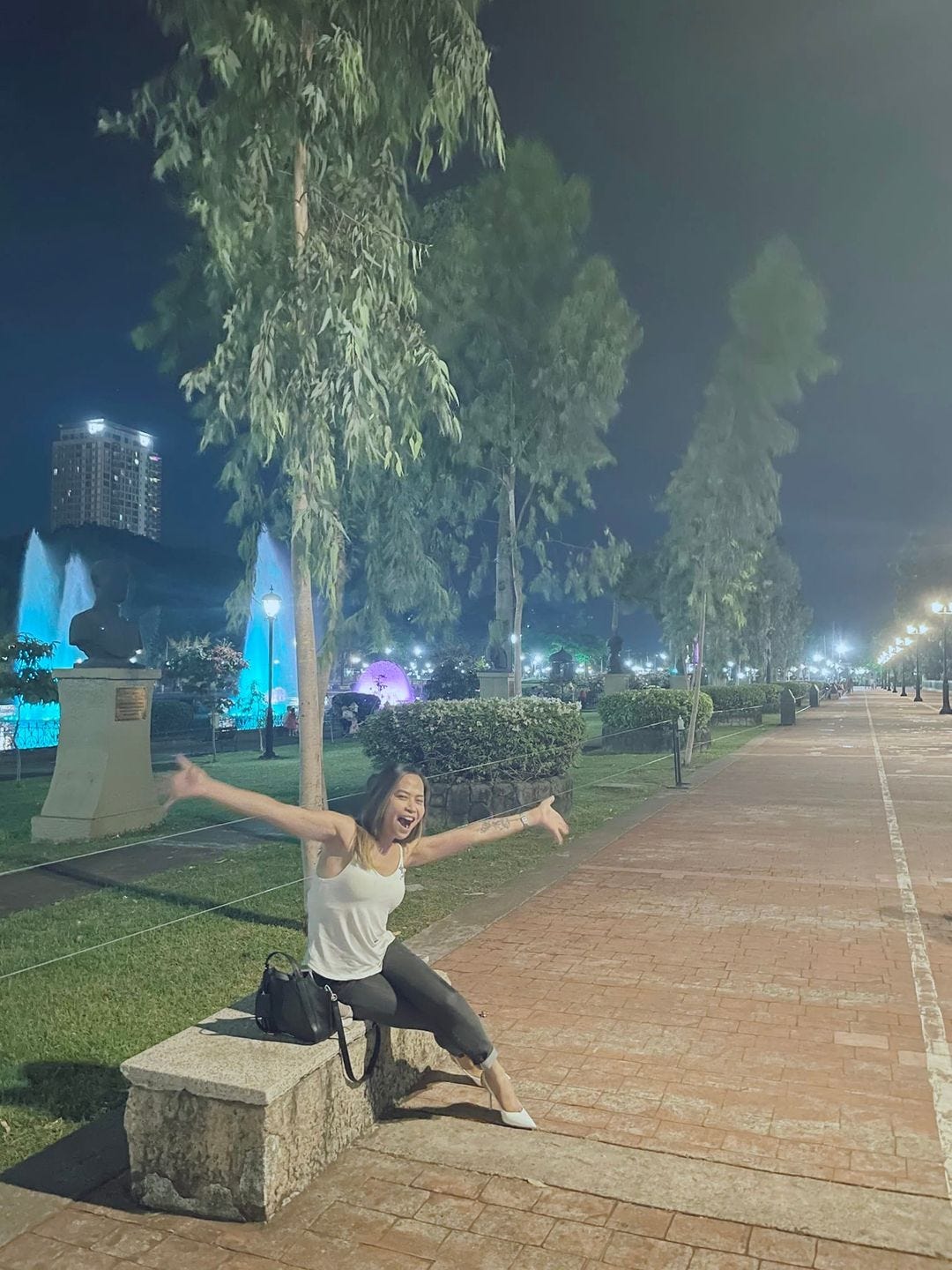
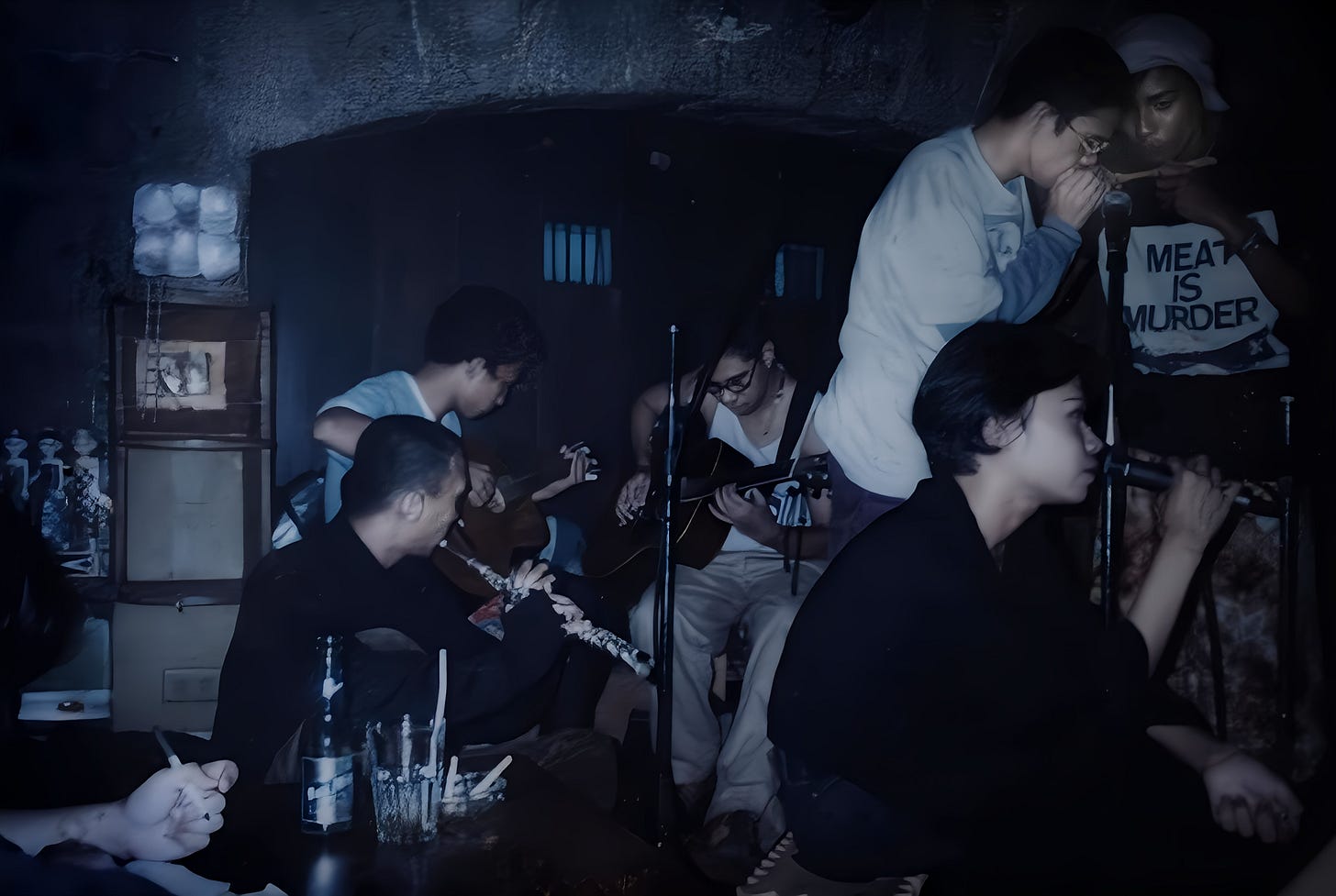
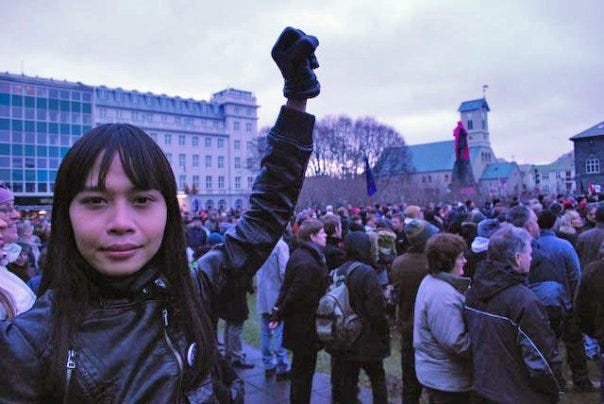
Deserve to be called Scholar 💞💞💞✅✅✅
Fb to substak laban lang mare